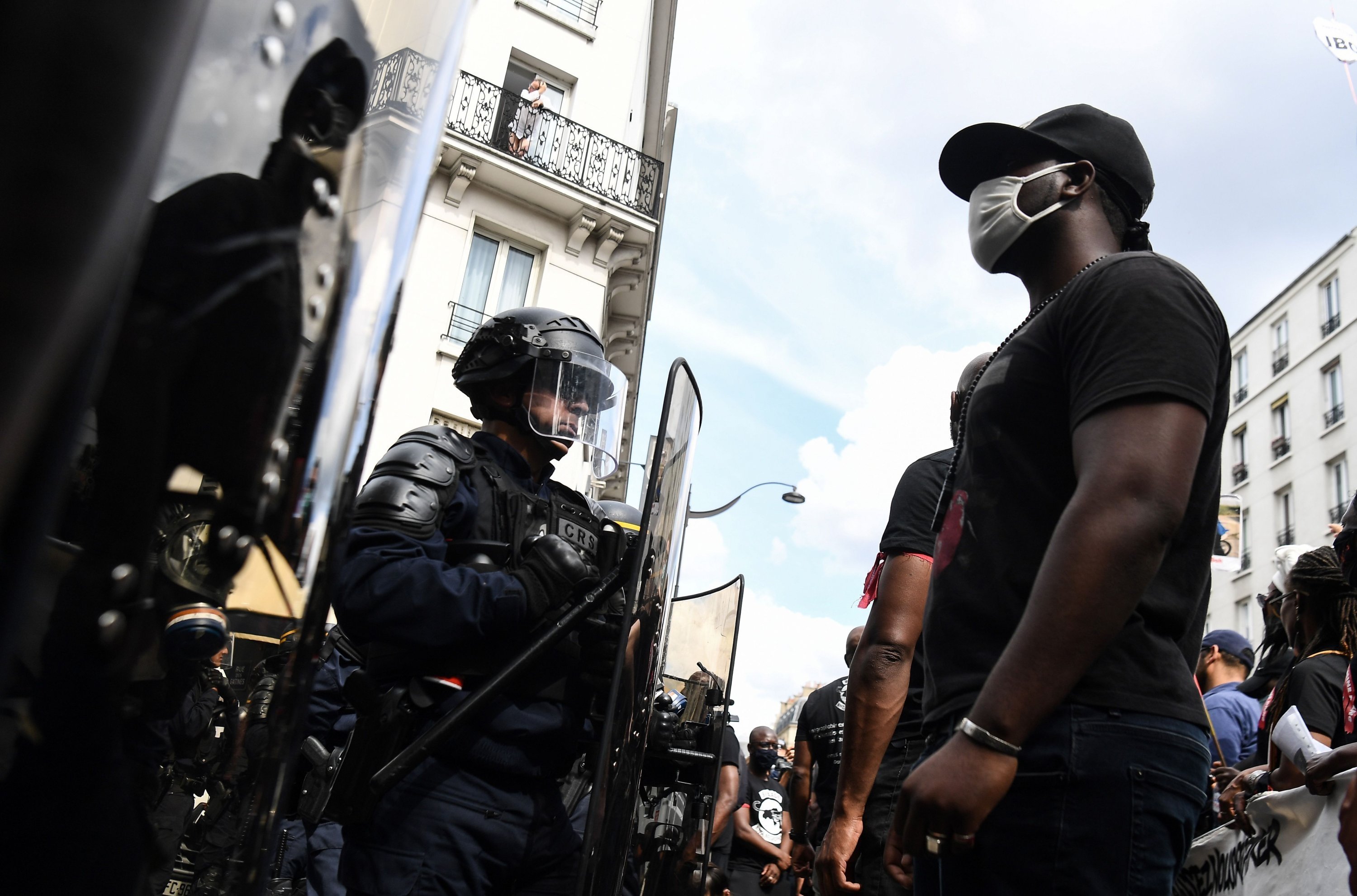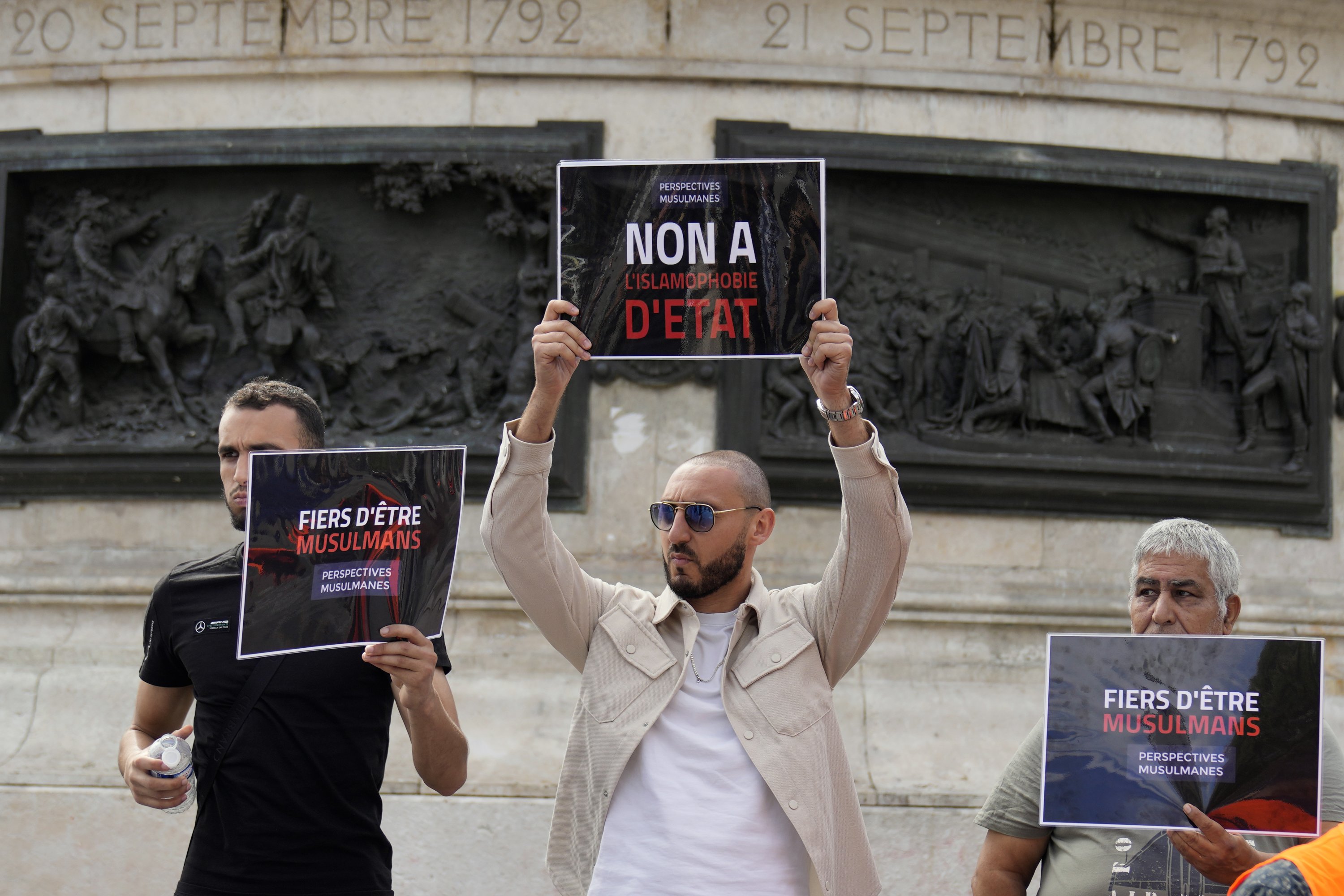© Turkuvaz Haberleşme ve Yayıncılık 2026
In the French town of Maurepas, a poor, run-down neighborhood in northern France's Rennes, Babacar Gueye, a 27-year-old Senegalese man, suffered an anxiety attack and cut himself with a table knife late at night on Dec. 2, 2015.
A friend of his called an ambulance, but police officers from the Anti-Crime Squad turned up instead.
When they entered the building, one of the officers fired five shots at Babacar, who died within an hour while handcuffed.
Just hours later, he was deemed responsible for his own death by all of the police officers who were at the scene.
Despite his death, they pressed charges against Babacar for the attempted murder of a person in public office, describing him as a particularly aggressive man, according to local media.
Babacar’s death triggered huge protests demanding justice and denouncing police abuse in the country.
An investigation was opened by the prosecution for the "attempted murder of persons holding public authority" and after several years of trial, the High Court of Rennes closed the case, concluding that the police officer acted in self-defense.
The Gueye family, who are still fighting for justice, have described their fight to the local press as a "fight against violence and racism of the state, its forces of order, its justice, its prisons and its detention centers."

Yasser Louati, a French political analyst and human rights advocate, who is currently the head of the Committee for Justice & Liberties (CJL), told Anadolu Agency (AA) that the French police have a long history of violence toward the civilian population, with little to no scrutiny, "let alone sanctions."
In his opinion, we must take a historical look at a Nazi connection who "initiated the decree that gave birth" to the modern-day French police.
We see that ever since, its track record was not that of "protecting and serving and upholding the French values to protect the civilian population, but to discipline and punish," he added.
According to him Muslim, Arab and Black minorities are getting brutally arrested and oftentimes killed by the police either in the streets or in police stations.
However, despite a long history of brutality, racism and multiple studies showing how prevalent far-right ideology is within the ranks of the police, the government does not seem to be prepared to act to reconsider the relationship of the police with the general population, said Louati.
"As a matter of fact, we see things evolving toward the worst, less transparency, less accountability, and overwhelming power is given to the police with little to no scrutiny," he said.
Louati pointed out that every time a Muslim person crosses paths with the French police, their "lives are in danger."
A Muslim person is more likely to be arrested and beaten by the police and for that reason, they are more at risk of dying at the hands of the police, he said.
According to the 2017 Ombudsman report, Blacks and Arabs are 20 times more likely to be racially profiled by the police.
A study by the independent French media outlet Basta revealed that 746 people were killed between 1977 and 2020 by the police in France, out of which 61 were women and 82 were children under the age of 18.
Among 444 people killed by bullets, 253 were unarmed, while one in 10 died due to the incapacity to breathe, according to the study.
"It is not a good time to be Black, Arab or Muslim in France, especially with this kind of police" that was born under a fascist government, Louati said.
Louati pointed out that French elites are easily ready to call out racism and police brutality in the U.S. or elsewhere but that they have no lessons to give "when we see what's going on in France."
For instance, since George Floyd was killed by a police officer in the U.S. a couple of years ago, "we have seen many pundits in the media, and from the right and the left, and people from the government call out racism and police brutality in the U.S."
They however called out demonstrations against racism and police brutality in France, said Louati, adding the French authorities refuse to look at the prevalence of racism on French soil and especially how institutions like the police become racist and violent.

"We have not seen those members of the government support the families of victims of police brutality when they take the matter to court," as it is more politically profitable to support the police than to question it, and "this is where the hypocrisy lies," he added.
In 2016, a 24-year-old Malian man named Adama Traore, dubbed the "French George Floyd," died in police custody in a suburb of northern Paris.
Similarities between Adama Traore’s fate and that of George Floyd demonstrate striking parallels between police violence and unrest in France and the U.S.
Both Black men died at the hands of police and struggled to breathe in their final moments.
Their deaths have become rallying points around the world for protests against police brutality.
